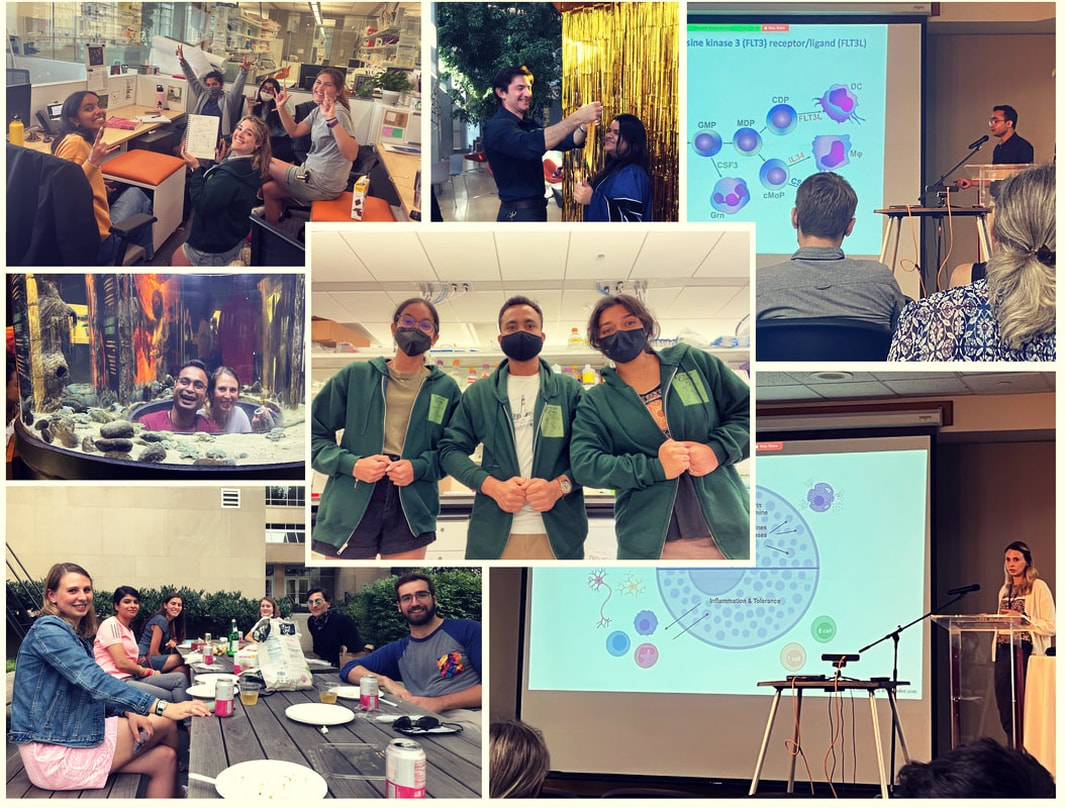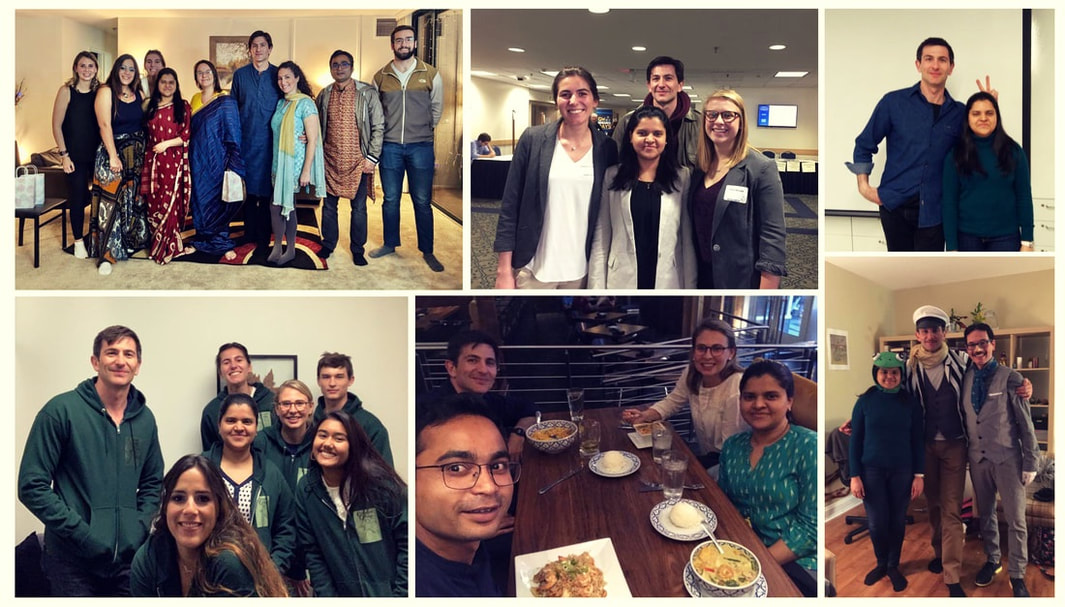the Grayfer Lab is...
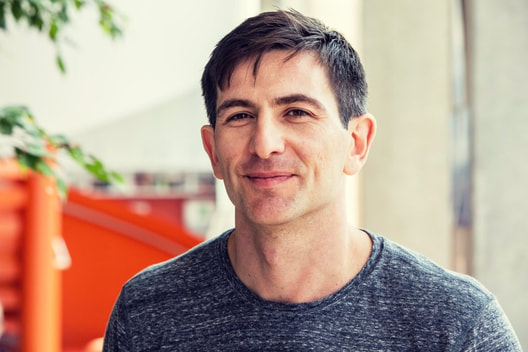
Leon Grayfer Associate Professor Dept. of Biology George Washington University
I have been fascinated with comparative immunology since my undergraduate days at the University of Alberta, Canada. From my undergraduate research and all through my graduate studies, I focused on gaining a better understanding of how bony fish regulated their antimicrobial immune responses. During this time, my work focused on immune cells known as macrophages, which are the cornerstone of all vertebrate immune responses and are in fact indispensable to most physiological processes. My profound interest into macrophage biology of aquatic animals led me to a postdoctoral fellowship at the University of Rochester, USA. During my time at U of R, I espoused the Xenopus laevis frog model towards the study of amphibian macrophage development and functionality. Presently, I am an Associate Professor of Biological Sciences at the George Washington University, USA. Here at GWU, my research group (see below) and I are investigating many different facets of amphibian immune development, functionality and the molecular mechanisms responsible for the immunological susceptibility and resistance of amphibians to several emerging pathogens.
I have been fascinated with comparative immunology since my undergraduate days at the University of Alberta, Canada. From my undergraduate research and all through my graduate studies, I focused on gaining a better understanding of how bony fish regulated their antimicrobial immune responses. During this time, my work focused on immune cells known as macrophages, which are the cornerstone of all vertebrate immune responses and are in fact indispensable to most physiological processes. My profound interest into macrophage biology of aquatic animals led me to a postdoctoral fellowship at the University of Rochester, USA. During my time at U of R, I espoused the Xenopus laevis frog model towards the study of amphibian macrophage development and functionality. Presently, I am an Associate Professor of Biological Sciences at the George Washington University, USA. Here at GWU, my research group (see below) and I are investigating many different facets of amphibian immune development, functionality and the molecular mechanisms responsible for the immunological susceptibility and resistance of amphibians to several emerging pathogens.
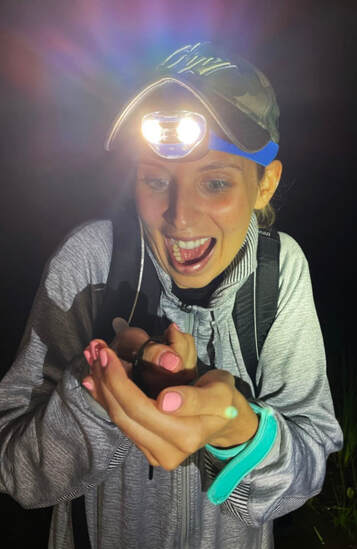
Kelsey Hauser, PhD candidate
Kelsey received her bachelor’s degree from Kenyon College in neuroscience and psychology.
After a year working at an investment consulting firm, she joined the Grayer group in 2019 (what a year!). Her research is focused on exploring the the development and functionality of frog immune cells known as granulocytes. She is particularly interested in how these cells contribute to anti amphibian anti-fungal defenses as well as the physiology of these animals
Outside of the lab, you’ll often find her running, fly-fishing, or taking advantage of the District’s museums.
Kelsey received her bachelor’s degree from Kenyon College in neuroscience and psychology.
After a year working at an investment consulting firm, she joined the Grayer group in 2019 (what a year!). Her research is focused on exploring the the development and functionality of frog immune cells known as granulocytes. She is particularly interested in how these cells contribute to anti amphibian anti-fungal defenses as well as the physiology of these animals
Outside of the lab, you’ll often find her running, fly-fishing, or taking advantage of the District’s museums.

Riad Hossainey, PhD candidate
After completing a MSc in Parasitology from the University of Dhaka, Bangladesh, Riad began his research career at the International Centre for Diarrhoeal Disease Research, Bangladesh. Before joining the Grayfer lab, Riad also accrued considerable experience researching malaria and anti-malarial drugs. Riad is investigating the functional development of amphibian macrophage subsets and their roles in various pathogenic infections.
He claims that the micropipette is his favorite lab instrument and he enjoy pipetting a lot! Apart from research activities, he loves listening to heavy metal music and hanging out with friends. Apparently, he also enjoys collecting prescription glasses, especially in the lab...
After completing a MSc in Parasitology from the University of Dhaka, Bangladesh, Riad began his research career at the International Centre for Diarrhoeal Disease Research, Bangladesh. Before joining the Grayfer lab, Riad also accrued considerable experience researching malaria and anti-malarial drugs. Riad is investigating the functional development of amphibian macrophage subsets and their roles in various pathogenic infections.
He claims that the micropipette is his favorite lab instrument and he enjoy pipetting a lot! Apart from research activities, he loves listening to heavy metal music and hanging out with friends. Apparently, he also enjoys collecting prescription glasses, especially in the lab...
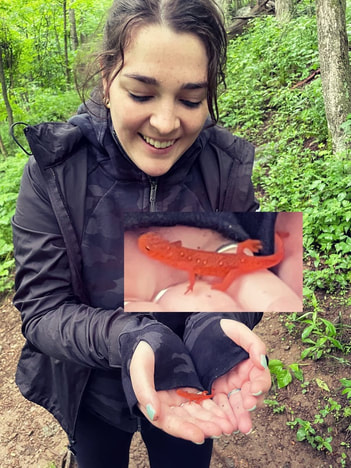
Chrissy Garvey, PhD student
Chrissy earned her bachelor’s of science degree from Cornell University CALS in Biological Sciences with a concentration in Marine Biology. After a year and a half of working at PwC in healthcare consulting, she joined the Grayfer group in fall 2021. Her research in the lab is focused on amphibian skin physiology and immunity and the potential implications to amphibian and to human health.
When she is not in the lab, Chrissy can be found sewing, embroidering, painting/making paint, wood burning something, or reading a book about marine biology or plants. She also loves all marine life, amphibians (axolotls the most), mushrooms & fungi, and pugs!
Chrissy earned her bachelor’s of science degree from Cornell University CALS in Biological Sciences with a concentration in Marine Biology. After a year and a half of working at PwC in healthcare consulting, she joined the Grayfer group in fall 2021. Her research in the lab is focused on amphibian skin physiology and immunity and the potential implications to amphibian and to human health.
When she is not in the lab, Chrissy can be found sewing, embroidering, painting/making paint, wood burning something, or reading a book about marine biology or plants. She also loves all marine life, amphibians (axolotls the most), mushrooms & fungi, and pugs!
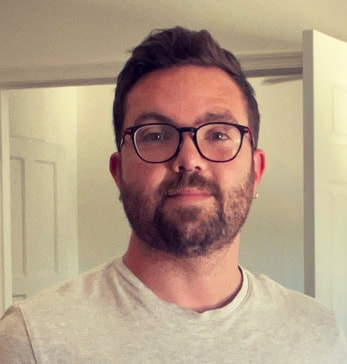
Dustin Howard, MSc student
Dustin graduated with a bachelor's degree in Biology from the University of Central Florida.
After a year of research looking at epigenetic variation in primates with the Sherwood lab, he joined the Grayfer lab in 2022 as a MSc student to research mechanisms controlling amphibian tissue macrophage biology. Outside of the lab, he loves to cook/bake and play piano (poorly, or so he says).
Dustin graduated with a bachelor's degree in Biology from the University of Central Florida.
After a year of research looking at epigenetic variation in primates with the Sherwood lab, he joined the Grayfer lab in 2022 as a MSc student to research mechanisms controlling amphibian tissue macrophage biology. Outside of the lab, he loves to cook/bake and play piano (poorly, or so he says).
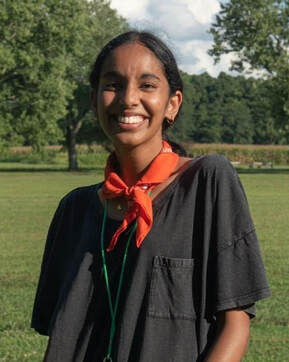
Netra Ranganathan, undergraduate student
Netra grew up in Dubai. She is currently a junior at GWU, majoring in Public Health.
In her free time, she loves to be outside and go hiking. She also loves to explore new food places and particularly loves bread.
In the Grayfer lab, Netra is exploring the successes and pitfalls of frog anti-fungal defenses.
Netra grew up in Dubai. She is currently a junior at GWU, majoring in Public Health.
In her free time, she loves to be outside and go hiking. She also loves to explore new food places and particularly loves bread.
In the Grayfer lab, Netra is exploring the successes and pitfalls of frog anti-fungal defenses.
Former (long-distance) lab members |
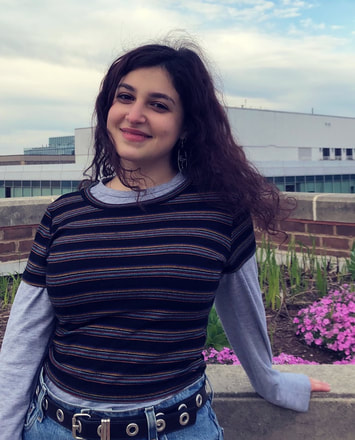
Mira Zelle, BSc
Mira joined the Grayfer lab in 2021 after her junior year at GWU. Her research focused on development and metamorphosis-associated changes in amphibian antiviral responses. Mira graduated from GWU in 2022 with a BSc in Public Health.
Mira currently attends the University of California, Berkeley, where she is pursuing her MPH in Infectious Disease and Vaccinology. She has not lost her love for research and currently studies malarial circadian rhythms. In her free time, she loves getting outside, painting, and anything involving Harry Styles.
Mira joined the Grayfer lab in 2021 after her junior year at GWU. Her research focused on development and metamorphosis-associated changes in amphibian antiviral responses. Mira graduated from GWU in 2022 with a BSc in Public Health.
Mira currently attends the University of California, Berkeley, where she is pursuing her MPH in Infectious Disease and Vaccinology. She has not lost her love for research and currently studies malarial circadian rhythms. In her free time, she loves getting outside, painting, and anything involving Harry Styles.
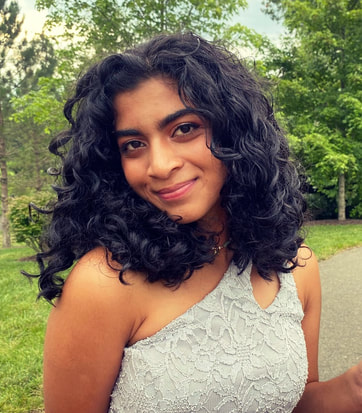
Aishani Patnaik
Aishani worked in the Grayfer lab during the summer of 2021 while studying at Thomas Jefferson High School. During her time in the lab, Aishani learned and perfected many techniques including qPCR, RNA isolation, and gene expression analyses. She enjoys dancing, biking, and spending time with friends and family during her free time. Aishani currently attends the University of Virginia where she volunteers at the local emergency clinic through Madison House. Aishani plans to major in Neuroscience on a pre-med track while continuing her interest in immunology.
Aishani worked in the Grayfer lab during the summer of 2021 while studying at Thomas Jefferson High School. During her time in the lab, Aishani learned and perfected many techniques including qPCR, RNA isolation, and gene expression analyses. She enjoys dancing, biking, and spending time with friends and family during her free time. Aishani currently attends the University of Virginia where she volunteers at the local emergency clinic through Madison House. Aishani plans to major in Neuroscience on a pre-med track while continuing her interest in immunology.
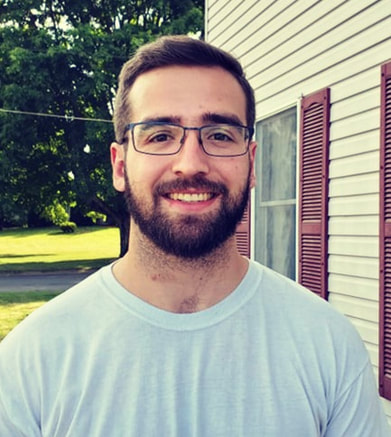
Tyler Moore, MSc
Tyler is a former Grayfer lab MSc student. His research focused on antiviral immunity and how macrophages interact with the Frog Virus 3 Ranavirus.
When not doing research, Tyler likes to spend his time watching sports, as his playing days are now in the past, playing video games and hanging out with friends.
Tyler is a former Grayfer lab MSc student. His research focused on antiviral immunity and how macrophages interact with the Frog Virus 3 Ranavirus.
When not doing research, Tyler likes to spend his time watching sports, as his playing days are now in the past, playing video games and hanging out with friends.

Zarafsha Uzzaman, BSc
Zarafsha is a rising junior at the George Washington University. She joined the Grayfer lab in the Fall of 2018. During her time in the lab, she has researched the differences in pathogen recognition capacities between adult and tadpole macrophages.
In her free time, Zarafsha enjoys singing, playing the piano, and visiting different coffee shops in D.C. She is also a member of the GW troubadours, an acapella group, and is apart of the Humanity First Student Organization at GWU.
Zarafsha is a rising junior at the George Washington University. She joined the Grayfer lab in the Fall of 2018. During her time in the lab, she has researched the differences in pathogen recognition capacities between adult and tadpole macrophages.
In her free time, Zarafsha enjoys singing, playing the piano, and visiting different coffee shops in D.C. She is also a member of the GW troubadours, an acapella group, and is apart of the Humanity First Student Organization at GWU.
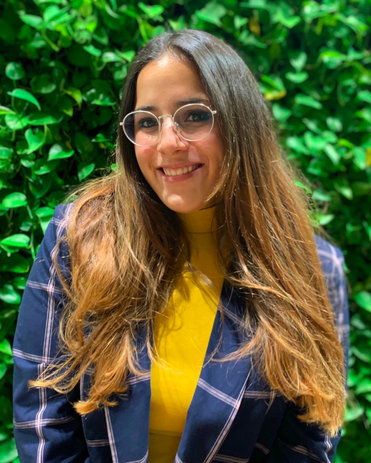
America Lugo, BSc
America is a Puerto Rican native who graduated in 2021 with a BSc in Biology, minoring in Public Health. She began pursuing her love of biology at GWU as a Learning Assistant for an introductory biology course, creating mnemonics for freshmen to remember. The following summer, she interned at the Universidad de Puerto Rico-Recinto de Ciencias Médicas where she analyzed the factors leading to thyroid
reoperation. Her work was recently published in the American Surgeon Journal. America began working in the Grayfer lab in the Spring of 2019 as part of the Harlan Research Program the following summer. In her time in the lab, America has learned and perfected various techniques through her research of amphibian antiviral (Type I and Type III) interferons responses.
America is a Puerto Rican native who graduated in 2021 with a BSc in Biology, minoring in Public Health. She began pursuing her love of biology at GWU as a Learning Assistant for an introductory biology course, creating mnemonics for freshmen to remember. The following summer, she interned at the Universidad de Puerto Rico-Recinto de Ciencias Médicas where she analyzed the factors leading to thyroid
reoperation. Her work was recently published in the American Surgeon Journal. America began working in the Grayfer lab in the Spring of 2019 as part of the Harlan Research Program the following summer. In her time in the lab, America has learned and perfected various techniques through her research of amphibian antiviral (Type I and Type III) interferons responses.
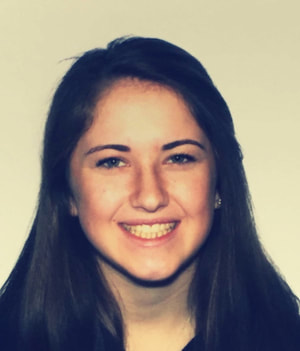
Julia Singer, BSc
Julia joined the Grayfer lab in the summer of 2018 and focused her research on defining the roles of amphibian interferon cytokines during the tadpole and adult frog immune responses to the Frog Virus 3 ranavirus. Aside from her research and scholarly studies, Julia likes to play guitar and enjoys outdoor activities, whether it is a beach, a mountain, a city, or a landmark. She was also a Chapter Officer of Sigma Alpha Lambda and participates in Club Frisbee and Club Gymnastics.
Julia joined the Grayfer lab in the summer of 2018 and focused her research on defining the roles of amphibian interferon cytokines during the tadpole and adult frog immune responses to the Frog Virus 3 ranavirus. Aside from her research and scholarly studies, Julia likes to play guitar and enjoys outdoor activities, whether it is a beach, a mountain, a city, or a landmark. She was also a Chapter Officer of Sigma Alpha Lambda and participates in Club Frisbee and Club Gymnastics.
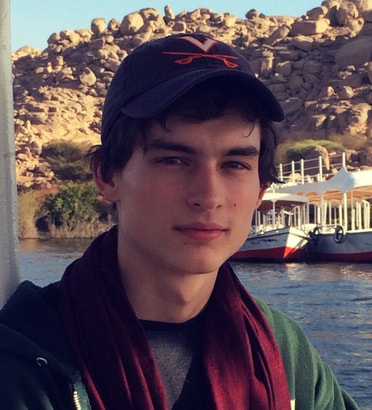
Phillip Reeves
Phillip conducted research in the Grayfer lab from the summer of 2018 through the summer of 2019, while studying at Thomas Jefferson High School. During his time in the lab he researched the role of chemokines in frog hematopoiesis, particularly in relation to macrophage development. Outside of the lab, Phillip designs and builds his own reptile and amphibian enclosures to house his impressive collection of cold-blooded vertebrate pets. He also enjoys getting outdoors by hiking and biking.
Phillip conducted research in the Grayfer lab from the summer of 2018 through the summer of 2019, while studying at Thomas Jefferson High School. During his time in the lab he researched the role of chemokines in frog hematopoiesis, particularly in relation to macrophage development. Outside of the lab, Phillip designs and builds his own reptile and amphibian enclosures to house his impressive collection of cold-blooded vertebrate pets. He also enjoys getting outdoors by hiking and biking.

Namarta Kalia, PhD
Namarta received her MSc in Molecular Biology and Biochemistry, from Guru Nanak Dev University (GNDU), India. She did her PhD in the Department of Molecular Biology and Biochemistry, GNDU. Her doctoral research was focussed on understanding the genetic basis of innate immunity that determines differential susceptibility of women towards recurrent vulvovaginal infections. Her area of expertise includes Innate Immunity, Genetics & Genomics, Infectious Diseases, Bioinformatics and Bio-statistics.
After spending years of research in her native country, Dr. Kalia travelled to the US to join Grayfer lab as a post-doctoral fellow. While working with us, Namarta investigated multiple faces of amphibian immunity in health and disease and demonstrated the roles of amphibian endogenous retroviruses in promoting antiviral immunity.
Namarta received her MSc in Molecular Biology and Biochemistry, from Guru Nanak Dev University (GNDU), India. She did her PhD in the Department of Molecular Biology and Biochemistry, GNDU. Her doctoral research was focussed on understanding the genetic basis of innate immunity that determines differential susceptibility of women towards recurrent vulvovaginal infections. Her area of expertise includes Innate Immunity, Genetics & Genomics, Infectious Diseases, Bioinformatics and Bio-statistics.
After spending years of research in her native country, Dr. Kalia travelled to the US to join Grayfer lab as a post-doctoral fellow. While working with us, Namarta investigated multiple faces of amphibian immunity in health and disease and demonstrated the roles of amphibian endogenous retroviruses in promoting antiviral immunity.
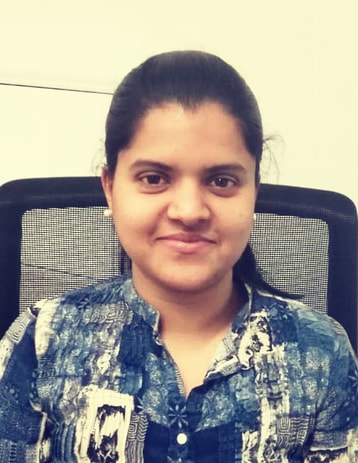
Amulya Yaparla, PhD
Upon finishing her college education in South India, Amulya moved to the United States for her post secondary studies. She received her MSc degree in Microbiology from Georgetown University, where she developed an inclination towards research and which led her to pursue a PhD program here at George Washington University. Amulya studied frog innate immune responses against various pathogens that are known to be contributing towards their declines. Her main research focus was on macrophage biology, specifically in understanding how these cells orchestrate antimicrobial immune responses in frogs, using Xenopus laevis as a model. Amulya defended her dissertation in May of 2020 and her PhD thesis work on 'the Functional Differentiation of Amphibian (Xenopus leavis) Macrophages' was recognized by the Dimitris N. Chorafas Foundation with the prestigious Chorafas Prize. Outside of the lab (if she's ever seen not doing research), Amulya enjoys experimenting in the kitchen as well, trying out different recipes. All of us in the Grayfer lab can attest to her incredible cooking skills! Amulya has yet to complete one of her doctoral requirements, namely singing Will Smith's 'Miami' in its entirety. Good thing that she's still in the DMV area. See at Karaoke night, Amulya!
Upon finishing her college education in South India, Amulya moved to the United States for her post secondary studies. She received her MSc degree in Microbiology from Georgetown University, where she developed an inclination towards research and which led her to pursue a PhD program here at George Washington University. Amulya studied frog innate immune responses against various pathogens that are known to be contributing towards their declines. Her main research focus was on macrophage biology, specifically in understanding how these cells orchestrate antimicrobial immune responses in frogs, using Xenopus laevis as a model. Amulya defended her dissertation in May of 2020 and her PhD thesis work on 'the Functional Differentiation of Amphibian (Xenopus leavis) Macrophages' was recognized by the Dimitris N. Chorafas Foundation with the prestigious Chorafas Prize. Outside of the lab (if she's ever seen not doing research), Amulya enjoys experimenting in the kitchen as well, trying out different recipes. All of us in the Grayfer lab can attest to her incredible cooking skills! Amulya has yet to complete one of her doctoral requirements, namely singing Will Smith's 'Miami' in its entirety. Good thing that she's still in the DMV area. See at Karaoke night, Amulya!
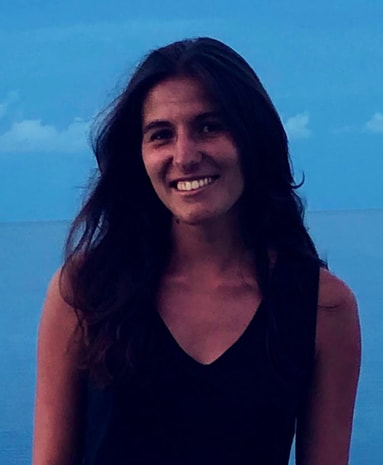
Daphne Koubourli, BSc
Daphne was one of the founding members of the Grayfer lab, starting in 2016 and all working with us all through her undergrad. She was particularly interested in defining the roles of granulocyte lineage cells in the frog health and disease. When not in the lab or in class, Daphne loved to row on the Potomac river, exploring used bookstores and reading. She was also actively involved in an online collaborative digitization projects, which involves thousands of volunteers across the globe to digitize texts, preserving everything from novels to car repair manuals to old scientific journals. Daphne has successfully completed her BSc and is now conducting biomedical research with a focus on immunology as a PhD candidate at UC San Diego.
Daphne was one of the founding members of the Grayfer lab, starting in 2016 and all working with us all through her undergrad. She was particularly interested in defining the roles of granulocyte lineage cells in the frog health and disease. When not in the lab or in class, Daphne loved to row on the Potomac river, exploring used bookstores and reading. She was also actively involved in an online collaborative digitization projects, which involves thousands of volunteers across the globe to digitize texts, preserving everything from novels to car repair manuals to old scientific journals. Daphne has successfully completed her BSc and is now conducting biomedical research with a focus on immunology as a PhD candidate at UC San Diego.
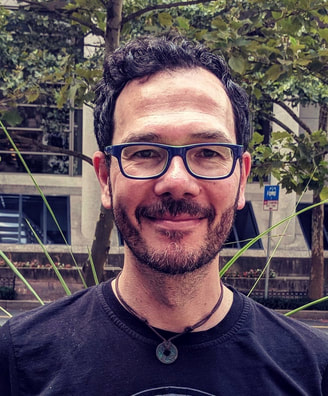
Milan Popovic, PhD
Milan received his MSc in Molecular Biology & Physiology, at the University of Belgrade, Belgrade, Serbia. His doctorate was earned at the University of Ulm, Germany. His first postdoctoral research was with a Reproductive Immunology Group at the Medical University of Berlin, Germany. After spending two years of research in his native country of Serbia, at the Institute “Vinča” in Belgrade, he traveled to the US to study kidney immunology at Center for Clinical and Translational Research, the Research Institute at Nationwide Children’s Hospital, Columbus, OH. Subsequently, he investigated the immune interactions between T effector cells and antigen presenting cells at the Department of Microbiology & Immunology, University of Rochester Medical Center, Rochester, NY. Dr. Popovic was an integral member of the Grayfer lab from 2017 to 2019, during which time he studied amphibian granulocyte and macrophage responses to viral and mycobacterial pathogens. Dr. Popovic is now conducting research at IsoPlexis.
Milan received his MSc in Molecular Biology & Physiology, at the University of Belgrade, Belgrade, Serbia. His doctorate was earned at the University of Ulm, Germany. His first postdoctoral research was with a Reproductive Immunology Group at the Medical University of Berlin, Germany. After spending two years of research in his native country of Serbia, at the Institute “Vinča” in Belgrade, he traveled to the US to study kidney immunology at Center for Clinical and Translational Research, the Research Institute at Nationwide Children’s Hospital, Columbus, OH. Subsequently, he investigated the immune interactions between T effector cells and antigen presenting cells at the Department of Microbiology & Immunology, University of Rochester Medical Center, Rochester, NY. Dr. Popovic was an integral member of the Grayfer lab from 2017 to 2019, during which time he studied amphibian granulocyte and macrophage responses to viral and mycobacterial pathogens. Dr. Popovic is now conducting research at IsoPlexis.
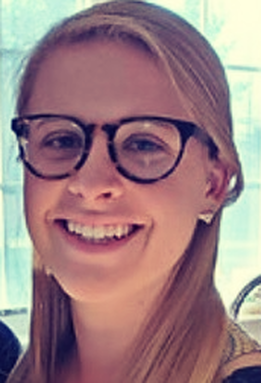
Emily S. Wendel, BSc
Emily was literally the first Grayfer lab member besides Leon. While working in our lab as an undergrad researcher, Emily discovered that tadpole and adult frogs mount distinct antiviral interferon cytokine responses within different tissues of Frog Virus 3 infection. Emily also demonstrated that tadpoles and adult frogs rely on distinct interferon cytokines during responses to distinct pathogenic challenges. Emily's work has culminated in two first author publications and represents a substantial contribution to our field. Emily knows all of the lyrics to, and can sing 'Ice, Ice Baby' at a moment's notice! She spent a considerable amount of time with the Peace Corps in Botswana, working with the local communities on projects related to bettering their education and public health. Emily is now pursuing a career in Public Health and Global Epidemiology.
Emily was literally the first Grayfer lab member besides Leon. While working in our lab as an undergrad researcher, Emily discovered that tadpole and adult frogs mount distinct antiviral interferon cytokine responses within different tissues of Frog Virus 3 infection. Emily also demonstrated that tadpoles and adult frogs rely on distinct interferon cytokines during responses to distinct pathogenic challenges. Emily's work has culminated in two first author publications and represents a substantial contribution to our field. Emily knows all of the lyrics to, and can sing 'Ice, Ice Baby' at a moment's notice! She spent a considerable amount of time with the Peace Corps in Botswana, working with the local communities on projects related to bettering their education and public health. Emily is now pursuing a career in Public Health and Global Epidemiology.
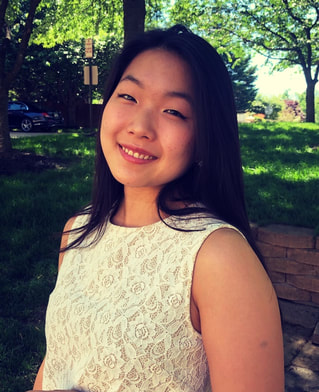
Grace Chong
Grace worked in the Grayfer Lab during the summer of 2019 through January of 2020 as a part of the mentorship program from Thomas Jefferson High School. She hopes to be able to return during her breaks from college. Her research focused on the Frog Virus 3 infection strategy of macrophage and frog kidney cells. Outside of the lab, she enjoys swimming, working out, and spending time outdoors with family and friends. Grace recently graduated from high school and is planning on attending Brown University in the fall.
Grace worked in the Grayfer Lab during the summer of 2019 through January of 2020 as a part of the mentorship program from Thomas Jefferson High School. She hopes to be able to return during her breaks from college. Her research focused on the Frog Virus 3 infection strategy of macrophage and frog kidney cells. Outside of the lab, she enjoys swimming, working out, and spending time outdoors with family and friends. Grace recently graduated from high school and is planning on attending Brown University in the fall.
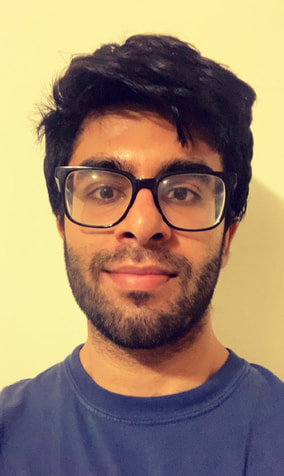
Aashish Batheja
Aashish conducted research in the Grayfer Lab during the summers of 2016, 2017, and 2019. During his time in our lab, Aashish mastered molecular techniques such as RNA isolation, cDNA synthesis, conventional and quantitative gene expression analyses. Aashish then made significant contributions to defining the differences in the pathogen recognition capacities of distinct frog macrophage populations. Outside of research, Aashish was a Program Director for after-school programs in Charlottesville. He also enjoys outdoor activities and playing basketball. Aashish is currently attending the University of Virginia.
Aashish conducted research in the Grayfer Lab during the summers of 2016, 2017, and 2019. During his time in our lab, Aashish mastered molecular techniques such as RNA isolation, cDNA synthesis, conventional and quantitative gene expression analyses. Aashish then made significant contributions to defining the differences in the pathogen recognition capacities of distinct frog macrophage populations. Outside of research, Aashish was a Program Director for after-school programs in Charlottesville. He also enjoys outdoor activities and playing basketball. Aashish is currently attending the University of Virginia.
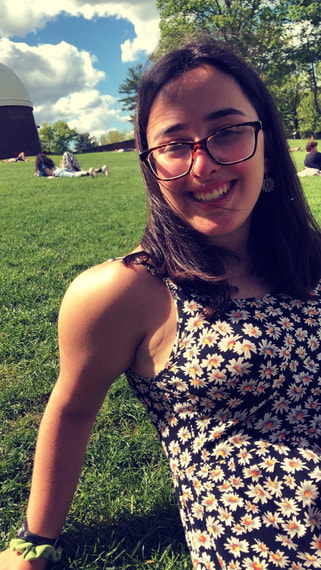
Hannah Docter-Loeb
Hannah conducted research in our lab in 2016-2017 as part of the School Without Walls high school internship program. After mastering an array of molecular techniques, Hannah focused her research in our lab on studying the expression of distinct pathogen pattern recognition receptors by different frog macrophage subsets and the capacities of these immune cell subsets to detect different pathogen associated molecular patterns. Hannah presented her research and the GWU Research Days as well at the DC STEM Fair, where she received 1st place for her poster presentation! Hannah is presently attending the Wesleyan University, where she is double majoring in Biology and Psychology with an Education Studies Minor.
Hannah conducted research in our lab in 2016-2017 as part of the School Without Walls high school internship program. After mastering an array of molecular techniques, Hannah focused her research in our lab on studying the expression of distinct pathogen pattern recognition receptors by different frog macrophage subsets and the capacities of these immune cell subsets to detect different pathogen associated molecular patterns. Hannah presented her research and the GWU Research Days as well at the DC STEM Fair, where she received 1st place for her poster presentation! Hannah is presently attending the Wesleyan University, where she is double majoring in Biology and Psychology with an Education Studies Minor.
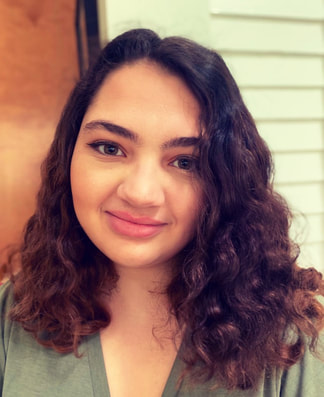
Mattie L. S. Melnyk
Mattie conducted research in our lab as part of the School Without Walls high school internship program in the fall of 2017 and the spring of 2018. While with us, Mattie learned how to isolate RNA from cells and tissues, how to generate cDNA libraries and how to perform conventional and quantitative analyses of immune and viral gene expression and how to quantify viruses in tissue samples. After mastering these molecular approaches, Mattie helped examine the gene expression of macrophage pathogen patter recognition receptors and the consequences of frog macrophage stimulation with different pathogenic components on their proinflammatory and antiviral responses. Mattie also helped to define the gene expression of pathogen recognition receptors in various tadpole and adult frog tissue sites of FV3 entry. Mattie's contributions are represented in a manuscript that has been accepted for publication and an additional article, which is in final stages of preparation. In the fall of 2020 Mattie will continue her undergraduate studies in her Sophomore year at UCLA where she is studying Microbiology, Immunology, and Molecular Genetics.
Mattie conducted research in our lab as part of the School Without Walls high school internship program in the fall of 2017 and the spring of 2018. While with us, Mattie learned how to isolate RNA from cells and tissues, how to generate cDNA libraries and how to perform conventional and quantitative analyses of immune and viral gene expression and how to quantify viruses in tissue samples. After mastering these molecular approaches, Mattie helped examine the gene expression of macrophage pathogen patter recognition receptors and the consequences of frog macrophage stimulation with different pathogenic components on their proinflammatory and antiviral responses. Mattie also helped to define the gene expression of pathogen recognition receptors in various tadpole and adult frog tissue sites of FV3 entry. Mattie's contributions are represented in a manuscript that has been accepted for publication and an additional article, which is in final stages of preparation. In the fall of 2020 Mattie will continue her undergraduate studies in her Sophomore year at UCLA where she is studying Microbiology, Immunology, and Molecular Genetics.
